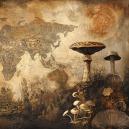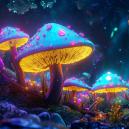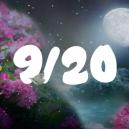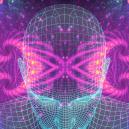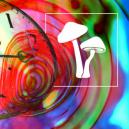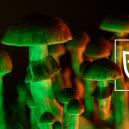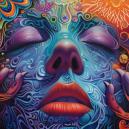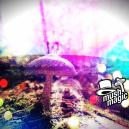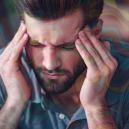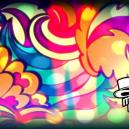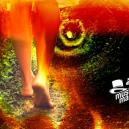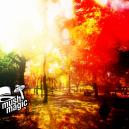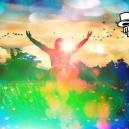Study: Magic Mushrooms Can Ease Anxiety
Published :
January 20th, 2017
Categories :
Health

Psilocybin containing magic mushrooms have been shown in two recent clinical studied to reduce the symptoms of anxiety, depression as well as other psychological disorders.
Magic mushrooms have been consumed for a variety of reasons by humanity going back thousands of years. They were embraced by ancient cultures around the world for their ability to induce a dream-like state. They played a significant role in the evolution of spiritual practices and beliefs. Some even believe they were the catalyst that sparked a wave of intellectual growth deep in our ancestry, which led to the development of civilization as we know it.
Due to strict prohibition, little information has been gleamed from scientific research on the subject of mushrooms and psilocybin. Magic mushrooms found themselves lumped together with truly harmful substances like heroin and cocaine. Prohibition ended any hope of science and medicine using psilocybin to better understand the mind and help relieve the psychological scars we acquire in life. New ew studies have the potential to change all that. After 50 years of ignoring the beneficial effects of psilocybin and mushrooms, new light has been shined on what was once widely held as taboo. Psilocybin may in fact hold the solution to unraveling some of the deepest mysteries of the mind and help bring real comfort to those who have been failed by pharmaceutical solutions for anxiety, depression and other psychological ailments.
RECENT STUDIES WITH PSILOCYBIN
Both studies were published in the Journal of Psychopharmacology with supporting articles and commentary written by some of the leading names in the field of psychology. Dr. Stephen Ross, the NYU Langone campus Director of Substance Abuse authored the study. Their aim was determine whether or not psilocybin had an effect on patients suffering from the psychological distress conditions resulting from advanced cancer. The patients suffered a variety of conditions from anxiety to depression.
Of the 29 people who participated in the study, as much as 80% of the participants reported noticeable reductions in the symptoms that plagued them. On top of reducing the symptoms immediately after the effects of the psilocybin wore off, it was found that the reduction in symptoms lasted long after the experiment was over. Some reported the positive effects as being sustained for six months after the initial treatment.
Fifty-one patients volunteered for a similar study at John Hopkins University. Not so surprisingly, the results were in-line with the study conducted by NYU. As much as 80% of the participants reported a reduction in the symptoms of anxiety and depression lasting six months. Of those who participated, 83% claimed that they had a new outlook on life and that they had an overwhelming feeling of well-being. Many described sensations of love, which should be a familiar theme for those who have experienced the effects of magic mushrooms recreationally.
According to participant Dinah Bazer, “The feeling of immense love lingered for weeks, and four years later, I still feel it at times. My fear and anxiety were completely removed, and they haven't come back.” Dr. Roland Griffiths, the lead researcher author of the John Hopkins study, said the key to understanding these effects is through carefully controlled experimentation, and warns against casual use which has the potential for unpredictable side-effects. Despite his words of caution, he is confident in the research and the potential that psychedelics like psilocybin can have in treating mental health disorders.
THE SCIENCE
Scientists know how mushrooms directly affect the brain. They also know that the symptoms of anxiety and depression can be quelled not only short term, but for the long haul, sometimes even from a single dose. These are the dots that researchers are trying to connect. How psilocybin and magic mushrooms actually achieve this feat is still a bit of a mystery, although there are some hypothesis. Researchers understand a lot about how psilocin interacts with the brain. They even understand that it helps forge new pathways in the brain. What they don't understand is the link between the chemical reactions that occur, and how they actually affect consciousness. Consciousness is still the biggest mystery in the universe.
Psilocybin is metabolized into psilocin once it enters the body. Psilocin is the compound that induces the psychedelic experience. The psilocin then binds to the same receptors that bind to serotonin, the chemical that regulates your mood. It was once believed that depression was caused by a serotonin deficit, however new research has found that low serotonin alone is not a cause. While scientists are sure there is a connection between serotonin, the serotonin receptors and depression, they cannot pinpoint what it is. The disrupting of the brain's ability to absorb serotonin undoubtedly plays a part in the healing effect experienced by those who participated in the recent studies. Further research on the subject could completely change the way we look at psychology and the treatment of psychological disorders.
NOT JUST A PARTY DRUG
The implications of using psilocybin as a medicine are staggering. No longer will patients have to be cornered into taking potentially harmful pharmaceutical substances in their attempts to solve a problem we don't truly understand in the first place. Those who have chosen to try psilocybin to help alleviate their symptoms of anxiety and depression report feelings of love and well-being that last long beyond the magic mushroom's initial effects. Besides anxiety and depression, magic mushrooms have the potential to treat PTSD, addiction disorders and even conditions like bulimia.
One of the hardest things to do in life is to come to grips with our own mortality. Psilocybin and other psychedelics like LSD, can help put people in touch with themselves and long suppressed feelings. For those suffering from debilitating and end-of-life conditions, having a psychedelic experience can help them come to terms with their lives and ease their journey as they pass. The benefits of magic mushrooms and their potential for healing far outweigh the risks, and the reasons given for prohibition. This alone should prompt us to take another look at the current state of legalization, at least for the purposes of expanded research.
Magic mushrooms are not just meant for a good time on a Saturday night. They have the potential to help us understand the how the mind works and could help cure psychological ailments that have plagued us for centuries. Unfortunately the stigma that has attached itself to magic mushrooms is far reaching and has prevented us from moving forward both medically and scientifically.





